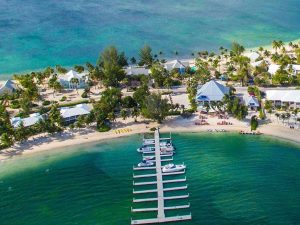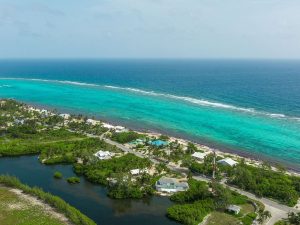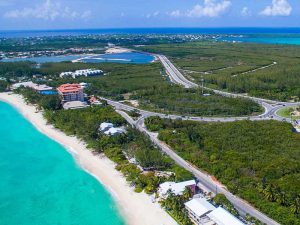Home » Things to do » Scuba Diving
Grand Cayman Scuba Diving A Concise Guide 2023
When it comes to scuba diving, Grand Cayman sets the bar high. The Cayman Islands offer an unparalleled underwater experience that divers from around the world flock to explore. With an abundance of dive sites and crystal-clear waters, here’s everything you need to know about scuba diving in Grand Cayman.
Grand Cayman Dive Sites
The Cayman Islands boast an astonishing array of dive opportunities, ensuring there’s something for divers of all levels and preferences. Whether you’re an adrenaline junkie or seeking a serene underwater encounter, you’ll find it here:
Wall Dives
Grand Cayman is renowned for its captivating wall dives, an experience that ranks among the best in the world. These underwater marvels offer divers the opportunity to explore dramatic vertical drop-offs into the deep blue. Here’s a unique summary of wall dives in Grand Cayman, including their locations and the best time to embark on this extraordinary adventure.
North Wall: Located on the north side of Grand Cayman, this wall is easily accessible and offers a diverse range of dive sites. Divers can explore its depths and encounter vibrant marine life, including coral formations, sponges, and reef fish. Notable sites on the North Wall include Babylon, Doc Poulson, and Lighthouse Point.
West Wall: Along the western shore of Grand Cayman, the West Wall showcases breathtaking underwater vistas. Divers can expect sheer drop-offs, underwater caves, and swim-throughs. Popular sites on the West Wall include Orange Canyon, Eagle Ray Pass, and Trinity Caves.
East End Wall: The East End of Grand Cayman boasts a less-visited but equally stunning wall. Divers can enjoy the serenity of this area while exploring sites like Babylon Wall, Snapper Hole, and Hammerhead Hill. The East End Wall offers a chance to encounter larger pelagic species.
Can’t find the information you are looking for, use the
Cayman Islands GPT
Related Topics
Cave Dives
Grand Cayman’s underwater world offers more than just picturesque reefs and dramatic wall dives. For those seeking a unique adventure, the island offers cave diving.
Devil’s Grotto: Located near George Town on the west coast of Grand Cayman, Devil’s Grotto is one of the island’s most famous cave dive sites. Divers can navigate through a network of submerged caves and tunnels adorned with stunning stalactites and stalagmites. The natural light filtering through the openings creates an enchanting underwater ambiance.
Eden Rock and Devil’s Den: Situated in George Town, Eden Rock offers a combination of reef and cave diving. Divers can explore the maze-like caverns and tunnels of Devil’s Den, encountering vibrant marine life along the way. These caves are suitable for both novice and experienced divers.
Babylon’s Dome: Located on the North Wall of Grand Cayman, Babylon’s Dome is a captivating cave system. This advanced dive site features an impressive dome-shaped cavern adorned with unique geological formations. Exploring Babylon’s Dome is a memorable experience for seasoned cave divers.
Wreck Dives
Grand Cayman offers an exciting array of wreck dives, where divers can explore sunken ships and aircraft. Here’s a concise summary of wreck dives in Grand Cayman.
Kittiwake Wreck (Seven Mile Beach): The USS Kittiwake, a former submarine rescue vessel, rests just off Seven Mile Beach. This iconic wreck offers divers an unforgettable experience as they explore its five decks, swim-throughs, and marine life that now call it home. The Kittiwake is an excellent choice for divers of varying experience levels.
Doc Poulson Wreck (North Wall): Located on the North Wall of Grand Cayman, the Doc Poulson is a captivating wreck known for its stunning coral growth. This site is perfect for intermediate divers who can explore the wreckage while enjoying the thriving marine ecosystem around it.
Balboa Wreck (George Town): Sunk intentionally in the 1930s, the Balboa Wreck lies near George Town. This shallow dive site is suitable for novice divers. It offers a glimpse into history as divers can explore the remains of the ship, which have become an artificial reef teeming with marine life.
Stingray City Diving
Stingray City in Grand Cayman is a world-famous destination where divers have the unique opportunity to interact with friendly southern stingrays in their natural habitat. Stingray City is situated in the North Sound of Grand Cayman, near Seven Mile Beach. The main attraction is a shallow sandbar known as “Stingray City Sandbar,” where southern stingrays congregate. This location offers ideal conditions for divers to interact with and observe these gentle and graceful creatures.
Beginner Dive Sites
Grand Cayman has many inviting and safe environment for novice divers to embark on their underwater adventures. Here are our recommended beginner dive sites:
Eden Rock and Devil’s Den (George Town): These sites are ideal for beginner divers due to their shallow depths and calm conditions. You’ll encounter a maze of coral formations and marine life, making it a fantastic spot for your first underwater exploration.
Paradise Reef (Seven Mile Beach): Paradise Reef is accessible and offers a gentle introduction to reef diving. The site is known for its vibrant corals and colorful fish, providing a visually stunning experience.
Cheeseburger Reef (George Town): Another beginner-friendly site, Cheeseburger Reef, offers a relaxed dive experience. This shallow reef boasts an array of hard and soft corals, making it an excellent place for novice divers to witness the beauty of Grand Cayman’s underwater world.
Safety and Certification
Safety is paramount in the Cayman Islands’ scuba diving industry. All scuba operators employ dive masters with professional certifications and adhere to strict safety standards. Grand Cayman even boasts a hyperbaric chamber, ensuring prompt treatment for any rare cases of decompression sickness.
For beginners eager to earn their scuba certification, numerous courses are readily available. Thousands of divers have embarked on their certification journey while on vacation in Grand Cayman, making it an ideal destination for those looking to start their diving adventure.
Conservation Matters
Responsible diving is a core principle in Grand Cayman. To protect the delicate underwater ecosystems, divers are encouraged to adhere to the “look, but don’t touch” rule. Coral reefs surrounding the islands are incredibly sensitive, and even a small touch can cause significant damage. It’s crucial to be mindful of your impact to ensure the preservation of these natural wonders.
Additionally, refrain from feeding fish, including the famous stingrays at Stingray City. Consistent human intervention disrupts the delicate balance of marine life, potentially leading to long-term negative consequences for the ecosystem.
Choosing the Right Dive Operator
Selecting the right dive operator is essential for a memorable and safe experience. Avoid “cattle boat” operations by inquiring about the maximum number of divers per trip. Opting for smaller groups not only ensures more personalized service but also minimizes stress and potential damage to the reef.
Here are some well-established dive operators in Grand Cayman that have been serving divers for over a decade:
Ambassador DiversKnown for personalized scuba diving experiences, they offer boat dives, snorkeling trips, and a range of PADI courses. | |
Cayman Turtle DiversLocated on the north side of Grand Cayman, they offer various dive trips, including visits to the famous Kittiwake wreck. | |
DiveTechKnown for technical diving courses, DiveTech caters to divers of all levels and is located at Cobalt Coast and Lighthouse Point in West Bay. | |
Don Foster’s Dive CaymanA long-standing dive operator based in George Town, offering boat dives and snorkeling trips. | |
Eden Rock Diving CenterSpecializing in East End dive sites, this dive shop offers unique experiences on the eastern side of Grand Cayman. | |
Living the Dream DiversLocated in George Town and West Bay, they provide personalized dive experiences and various PADI courses. | |
Ocean FrontiersSpecializing in East End dive sites, this dive shop offers unique experiences on the eastern side of Grand Cayman. | |
Red Sail SportsOne of the largest and most reputable dive operators, offering a wide range of dive services, including boat and shore dives. | |
Sunset DiversSituated at the Sunset House Resort in George Town, they offer daily boat dives and dive courses. |
Finally, Grand Cayman is a scuba diver’s paradise, offering a wide range of dive experiences, top-notch safety standards, and a commitment to marine conservation. Choose your dive operator wisely, respect the underwater environment, and prepare for an unforgettable, underwater journey in Grand Cayman.







